When you're pregnant, it can sometimes feel like you spend your entire life in the doctor's office. Whether you are getting a shot, withdrawing blood for testing, waving a wand on your belly, drinking gross juice, or answering a million questions, it really can start to feel totally, insanely invasive.
But take heart! These tests actually DO serve a purpose and, in most cases, serve to make your baby (and you) much healthier in the long run. So just how many tests are required? In a healthy pregnancy, there are many tests that need to (or should) be done prior to the birth. We consulted Dr. Erica Song, a partner at Englewood OB-GYN Women's Group, and Dr. Mary Jane Minkin, an OB-GYN at Yale and First Response spokesperson.
These are the 7 tests and why we take them, so listen up! See below:
Image via Contra Costa Times/Flickr
Before Conception -- Genetic Testing
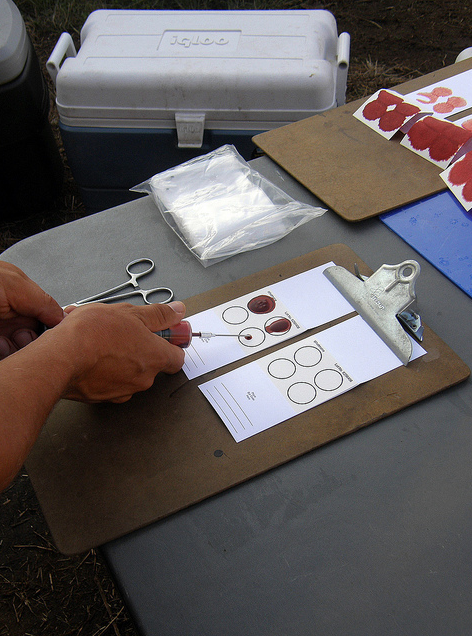
Genetic testing for diseases mom and dad might pass to baby just by coming together is often done before a pregnancy starts, but it can also be done at the first prenatal appointment around 8 weeks or so. "Genetic screening is done to detect whether the parent is a carrier for certain serious genetic disorders. A carrier is a person who has no symptoms of a disorder but can pass on the gene for that disorder to his or her children. Carrier screening is done through saliva or blood tests. If mom is positive, then the baby's father is tested. If both the mother and father are carriers, there is a chance that the baby will have the actual disease and be affected. Different genetic testing is recommended based on a parent's ethnic background and family history," says Dr. Song.
First Appointment -- Test for Rubella Immunity
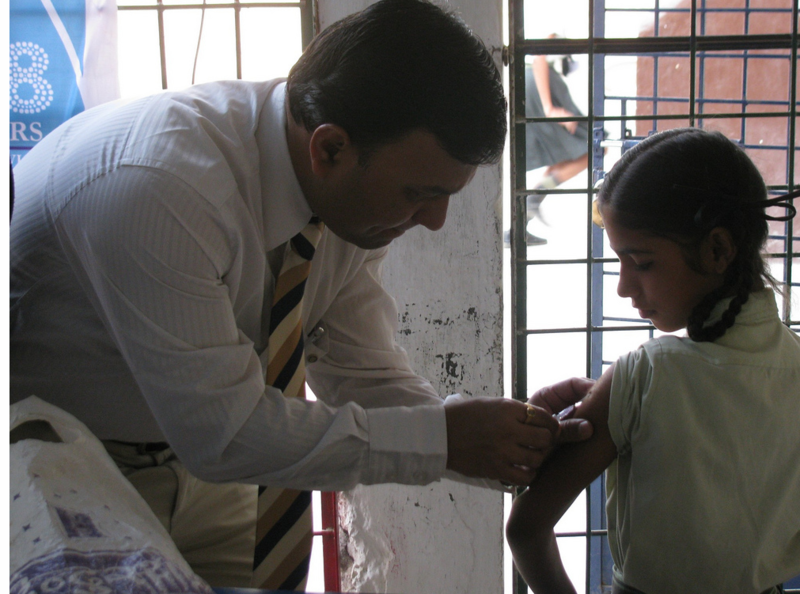
In all likelihood, you were vaccinated for this as a child. But, according to Dr. Song, the danger is strong if you weren't. "If contracted during pregnancy, German measles can cause multiple birth defects to the baby including deafness, eye abnormalities, and congenital heart defects." Yikes. It can also wear off. Typically this test is given prior to conception and the woman can be vaccinated then, but if not, it would be given at 8 weeks or so and then the woman would be vaccinated soon after the birth.
10 Weeks -- CVS Testing
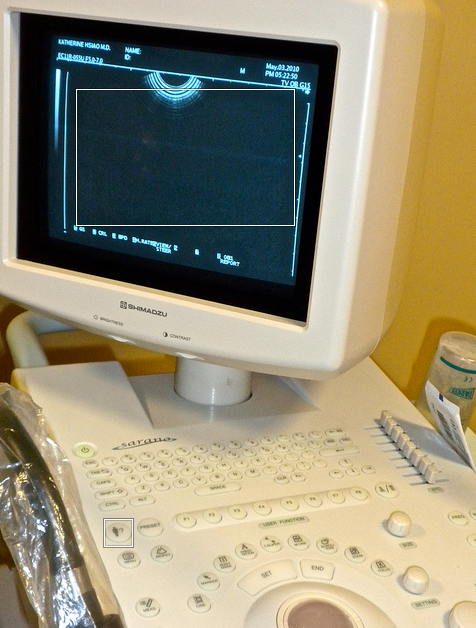
CVS is done between 10-12 weeks to detect chromosomal problems and is really only recommended for women over 35, due to the increasing risk for chromosome problems with a women's age. It may also be recommended to women who have had other abnormal genetic screening tests. Dr. Song explains the process: "Using an ultrasound for guidance, a needle is inserted through the abdomen or vaginal to remove a small amount of chorionic villi, which are cells that will develop into the placenta. This test provides a chromosomal analysis potentially over a month earlier than an amniocentesis."
16 Weeks -- Amniocentesis

Amniocentesis is usually performed between 16-20 weeks to detect chromosomal abnormalities. This test is often recommended for women over 35, due to the increasing risk for chromosome problems with a woman's age. Dr. Song explains: "Using an ultrasound to locate a pocket of amniotic fluid, a needle is inserted to withdraw some fluid. The cells in the fluid, which come from the baby, are analyzed for genetic defects. The amniotic fluid is also tested for alpha-fetoprotein (AFP) to help detect neural tube defects. Neural tube defects are birth defects that result from abnormal development of the brain, spinal cord, or their coverings."
20 Weeks -- AFP Screening
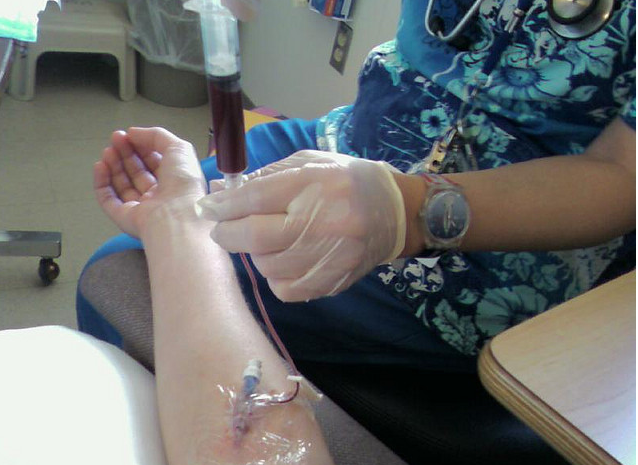
This screening is typically done between 15 and 20 weeks of pregnancy. Alpha-fetoprotein (AFP) is a substance made by the fetus, and is found in the amniotic fluid, fetal blood, and in the mother's blood. Abnormal levels of AFP can indicate a neural tube defect, which will then lead to a more detailed ultrasound analysis of the baby's spine. "Abnormal levels can also indicate complications later in pregnancy, such as an increased risk for stillbirth. This will lead the obstetrician to more closely observe the pregnancy and developing baby with serial ultrasound for growth and fetal testing such as nonstress tests," says Dr. Song.
28 Weeks -- Glucose Test
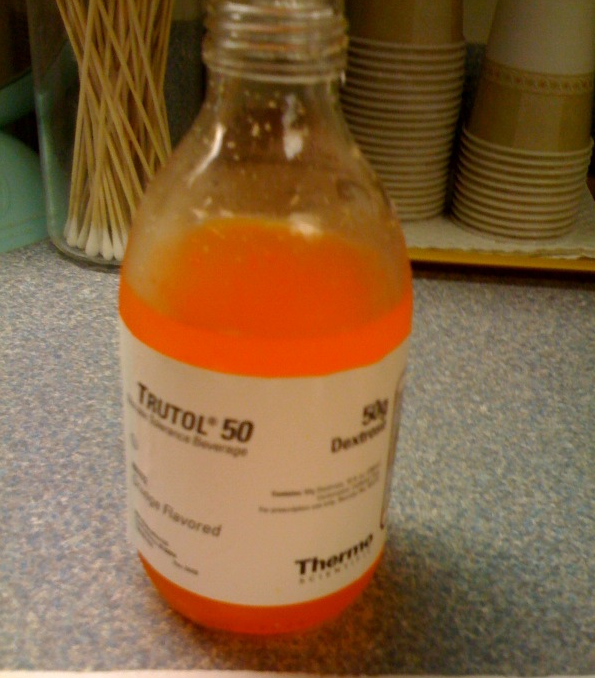
This test usually given around 28 weeks. “The Glucose Test tests for diabetes during pregnancy," says Dr. Minkin. "Twenty-eight weeks is about the time that the mom starts to show abnormal glucose levels if she didn’t have pre-pregnancy. If someone is at high risk for diabetes during pregnancy, we may do a glucose screen the first time she shows up at the office." Still, most women go at 28 weeks. Bottoms up!
36 Weeks -- Group B Strep
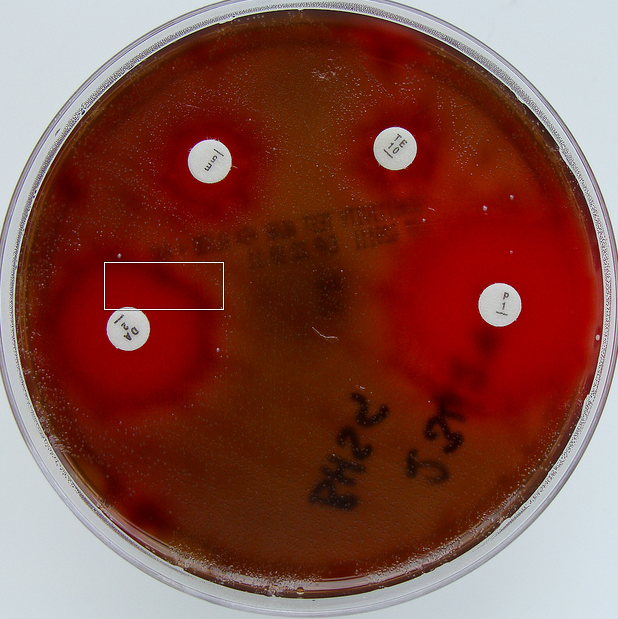
This is done toward the end of pregnancy, usually around the 36-week mark. "We want to know whether the mom is a group B strep carrier to give her antibiotics during delivery to minimize the risk of the fetus being infected with strep," says Dr. Minkin.




